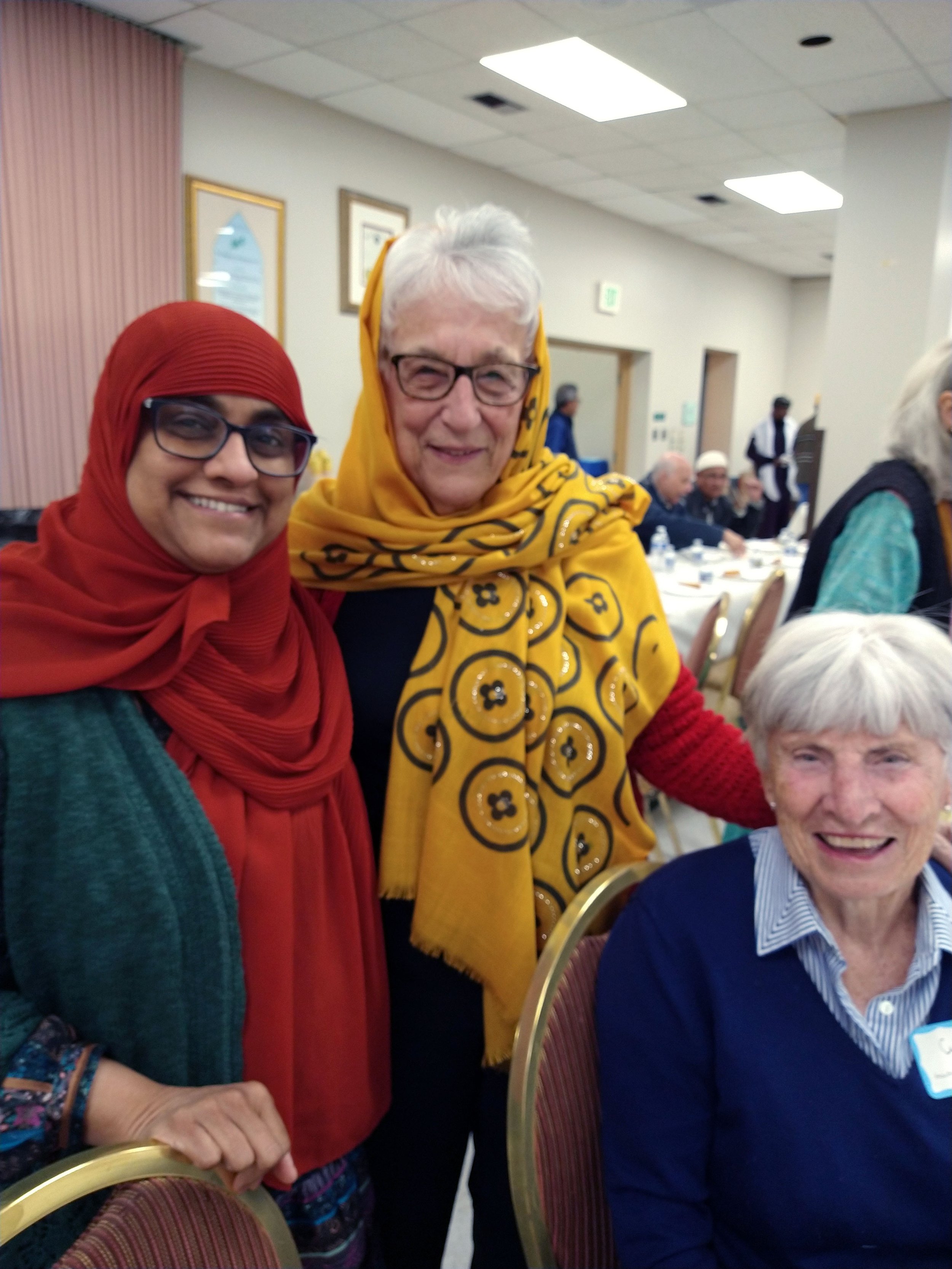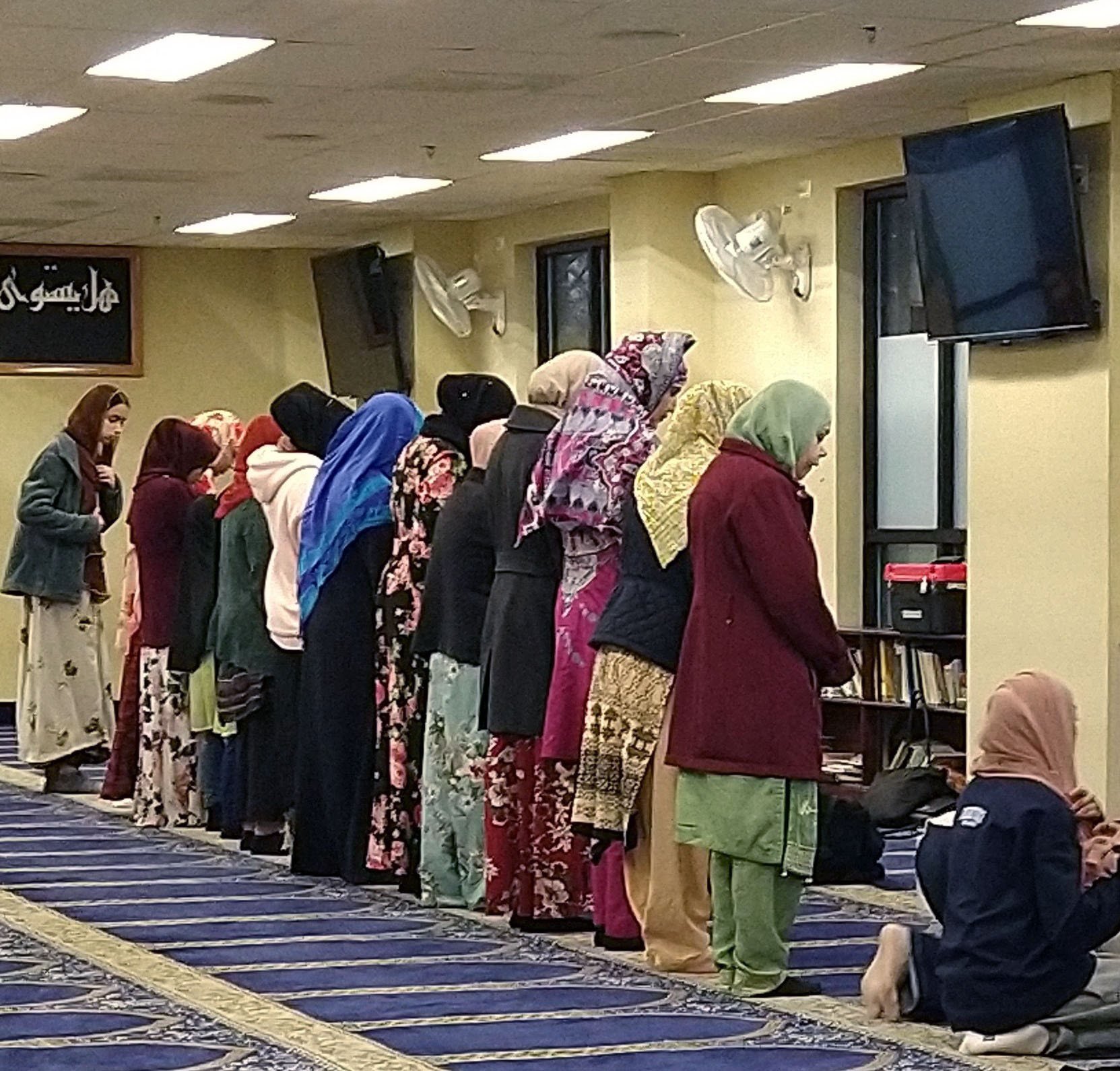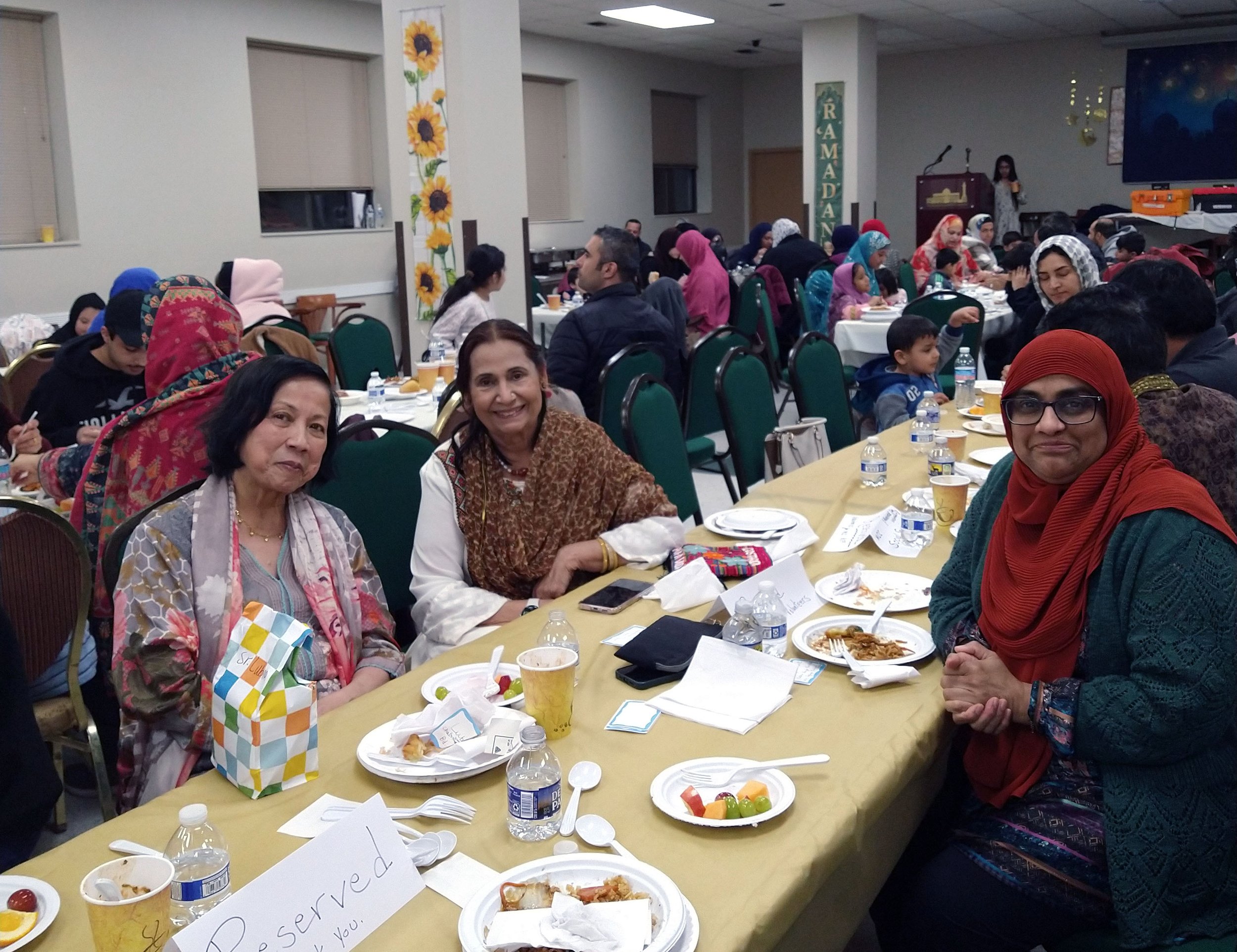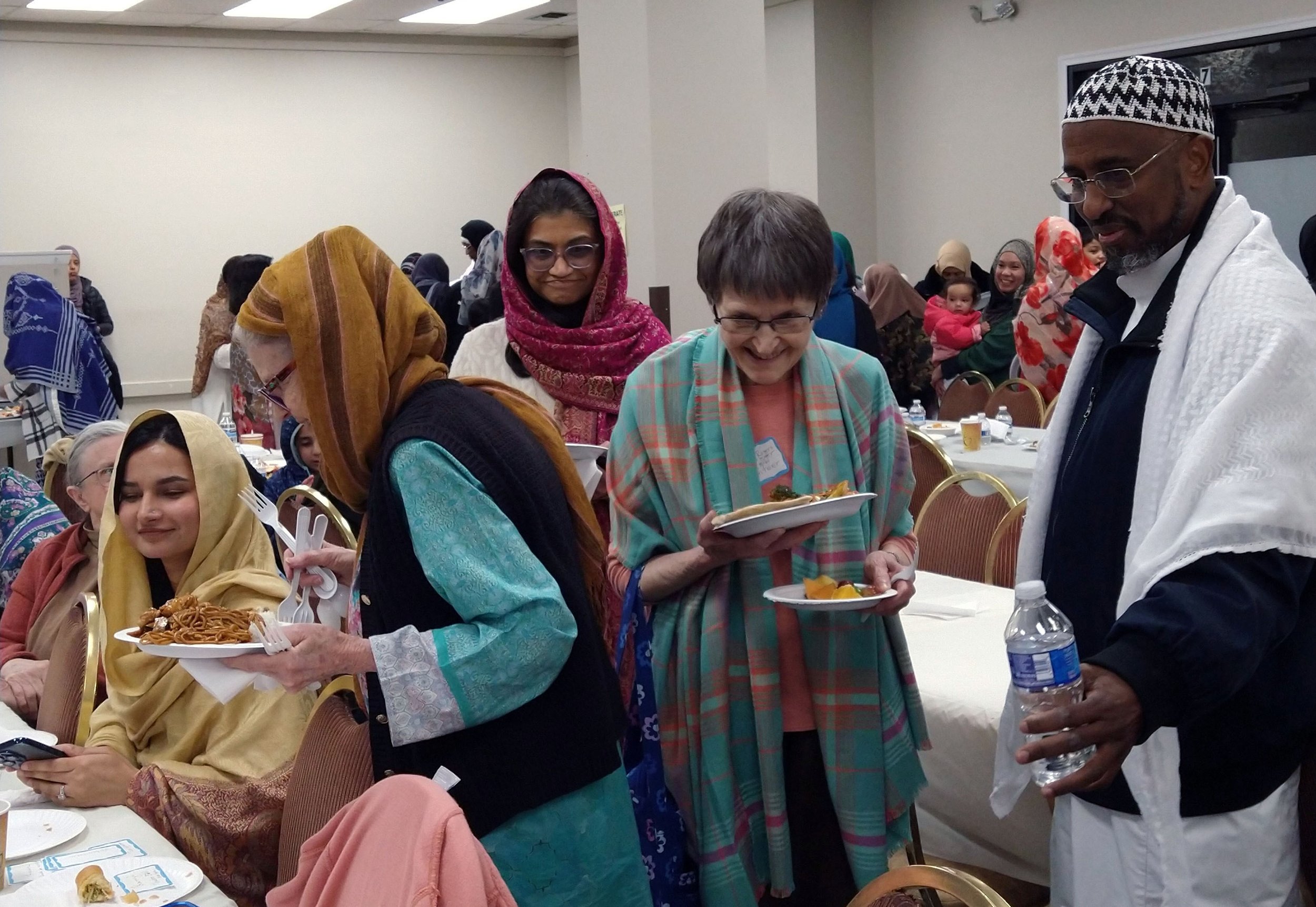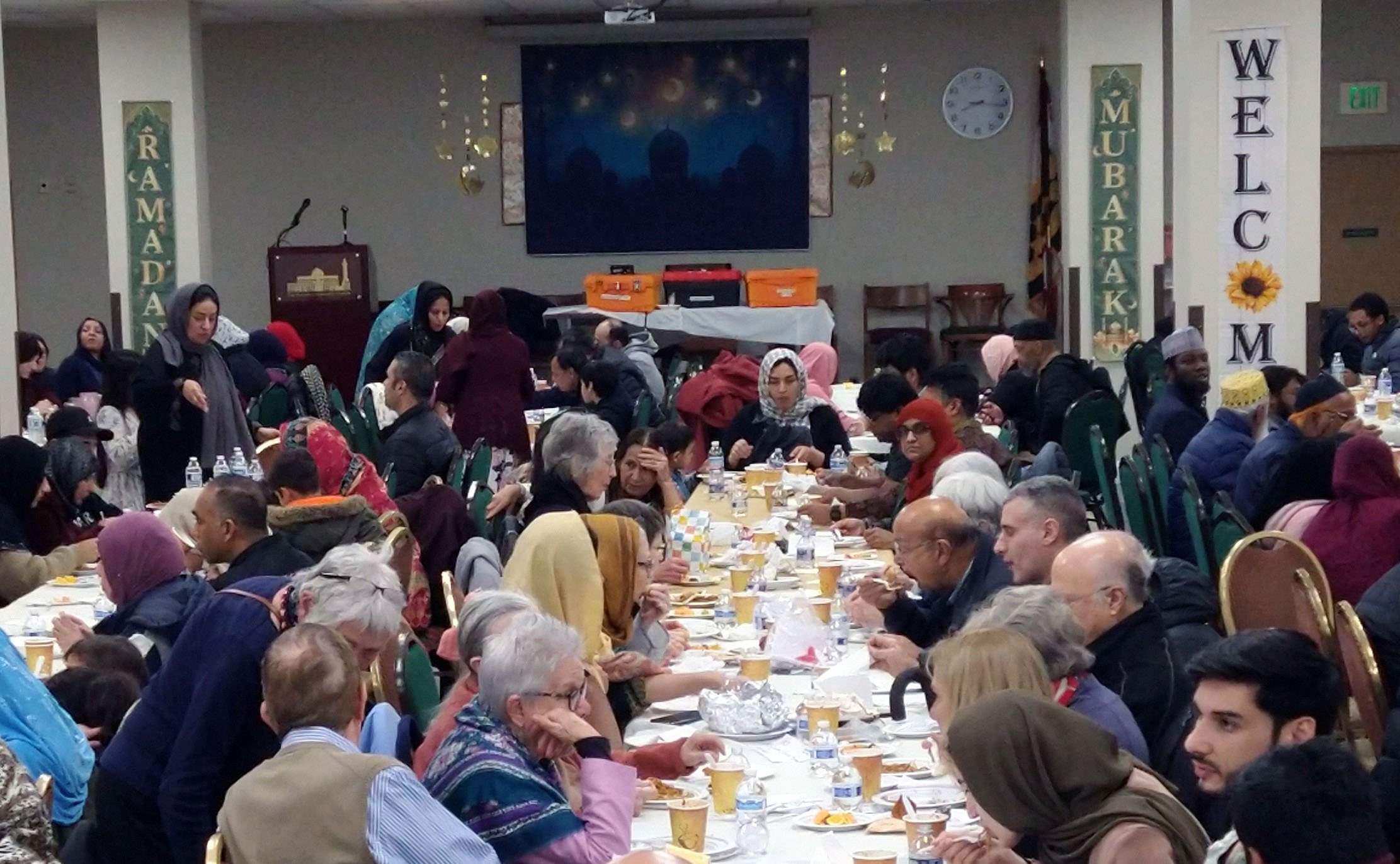Sister’s Tutoring Leads to Ramadan Experience
Sr. Marie Chiodo, DW, shares this account of her recent Ramadan experience, which came about through the invitation to a breaking fast dinner by the program director, a leader in the Mosque for which she serves as a tutor. Among the many ministries in which Sr. Marie has reached out to and accompanied refugees, she has taught English and American culture in Maryland for many years. Her story is a witness to the similarities between people of faith and families who share traditions and have comparable desires in life.
Muslims worldwide observe Ramadan as a month of fasting, prayer, reflection, and community.
Each night of the thirty days of Ramadan, the local Mosque holds a breaking fast dinner at its community center for more than 200 Muslim families and their guests. Someone from the Muslim community donates the money for each night's repast, so all who come are guests. Last night, eighteen tutors from the Mosque's Refugee English Tutor program were invited guests.
We sat awaiting the setting of the sun, which we viewed through the western windows and then broke fast with a fig and a spring roll. A different country's food is served each night of the thirty nights of Ramadan.
After breaking fast, the women went to pray in the room adjacent to the temple area. The Imam led prayer from the temple area, reciting sutras from the Quran. Kneeling and standing are interspersed with silence. My student, Farashta, made the head covering for me. She is a gifted seamstress.
Following prayer, we returned to the dining hall, where we feasted on delicious Chinese food catered for the evening. I was with women from Pakistan, the Philippines, and India, and they shared what fasting each day of Ramadan was like for them. Before daybreak, they make breakfast for their families. Then they do not eat or drink, not even water, each day till the sun sets. They say they feel so good in fasting. They read and pray from the Quran. During Ramadan, the entire Holy Book is read. And then they do almsgiving in Ramadan. Thus, they honor four of the Five Pillars of Islam: declaration of faith in Allah, Prayer, Fasting, and Almsgiving. The fifth is the pilgrimage to the Haj.
My name tag indicated that I was a Sister. They knew of sisters, and two went to Catholic schools in their countries. In Islam, each one is called "sister or brother." So, they laughingly told me I was "Sister-Sister," and they were "Sister." They asked me about fasting in the Christian way.
We shared concern, grieving over the situations of war and hatred in our world, in our country. They have an active food pantry at the Mosque and are working to help with aid to Palestinian families.
They wanted to know about my students and their families. They shared pics of grandkids and stories of their lives. They expressed gratitude for so many who were willing to devote themselves to helping refugees learn the language and culture of the U.S. and preparing many for citizenship as well.
I was sitting next to one of the tutors, Monica, whom I had not met yet, and she asked what kind of sister I was. I told her Daughter of Wisdom, and wasn't I shocked that she knew of us? (She is in the picture with me and Sara Faraqoi.) She was from a military family, lived in Norfolk, and, as a teenager, knew Emily Mullens, who entered the Daughters of Wisdom. What are the odds of that happening??
I came home so grateful for this opportunity to share faith, life, and beliefs and to know that it is possible to share across faith traditions in a way that fosters Peace and Oneness—it has to be!
Sr. Marie Chiodo, DW, 3/2024

